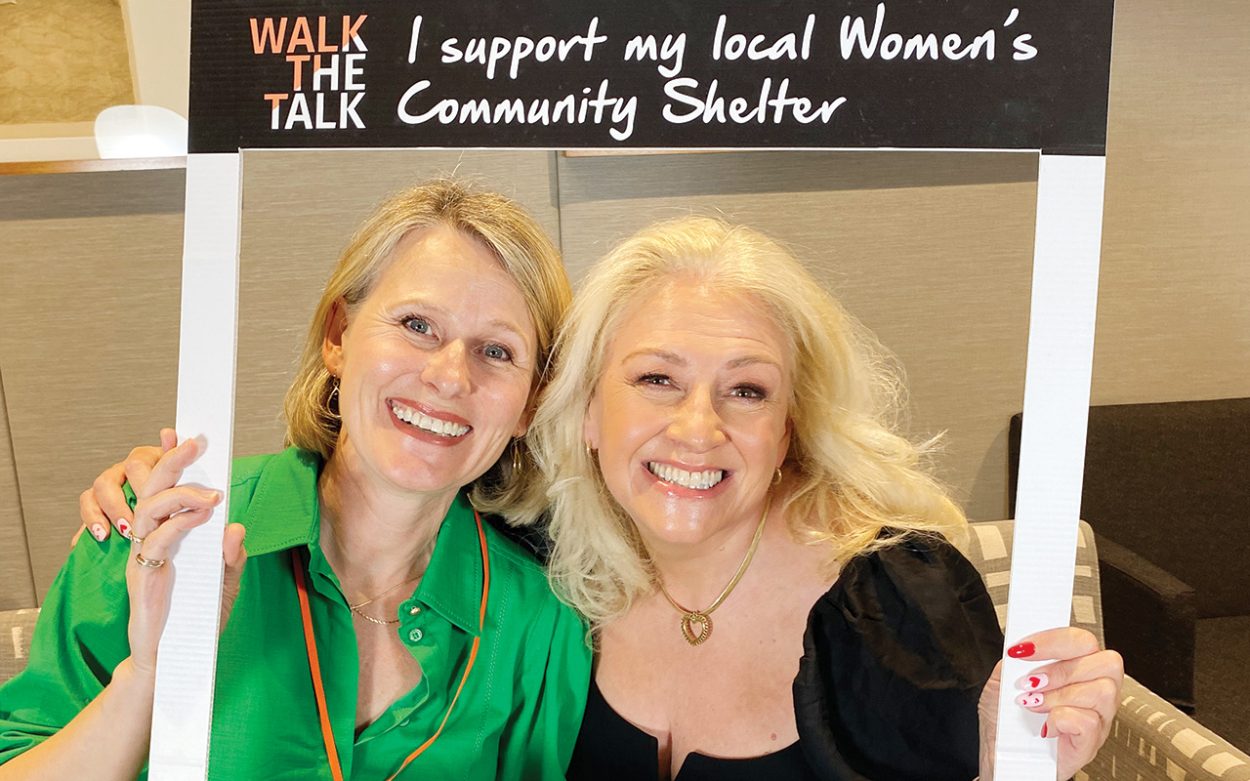By Kennedy McCullough
AN estimated 580 women couch surf, sleep in their cars or sleep rough every night on the Mornington Peninsula. The high cost of living makes rent unaffordable for single women, whether they have children or not, with pandemic-induced population growth and short-stay tourism worsening the situation. Coupled with insufficient government-funded crisis shelters, a desperate need has arisen to support at-risk women and children on the Mornington Peninsula.
Women’s Community Shelters (WCS) have begun the process of establishing their first Victorian-based shelter on the peninsula. It will provide crisis accommodation for up to 70 clients within the first year including 30 women and 40 children, totaling over 3,400 bed nights.
As part of the program, WCS has implemented an education program at two Mornington Peninsula schools. “I’m a big believer in teenagers and their capacity to be change makers,” said Dannielle Miller OAM, the CEO of Enlighten Education and director of education at Women’s Community Shelters.
Miller was already working as an educator running her own wellbeing programmes for students, and writing as a journalist when she became inspired to became involved in WCS. “I was working as a newspaper columnist for The Daily Telegraph,” said Miller. “As I sat down at my computer, ready to write yet another op-ed about a woman who had lost her life at the hands of a man who once said he loved her, I felt filled with rage and grief that we seem to be having this same conversation on a loop. “As a country nothing much was ever really changing. “As fate would have it, while I was feeling so driven to do more than just talk about the issue, I saw in my local paper that they were having a community forum with the hope of building a women’s shelter in my neighbourhood. “So I went to that meeting and put my hand up to help that very night.”
Miller’s involvements in WCS soon led her to integrate youth education as part of what a newly established shelter would offer the community. “From the outset, I said I would love to help open shelters, but equally I would be passionate about closing them down when there was no longer a need in society,” said Miller.
Asked if the programme is about early intervention to put a stop to behaviours that eventually lead to domestic violence, Miller told The News “I think it is actually a big ask to expect that we can put the burden of changing attitudes around gender-based violence all on young people’s shoulders”. “But in saying that, I really do think it’s a very powerful early intervention and prevention strategy.”
The “Walk The Talk” program was held at Peninsula Grammar in Mount Eliza, and Rosebud Secondary College. It involved a half day training session with Miller in which the students learned about the causes and effects of domestic and family violence. The session aimed to inform the participants of different ways that domestic violence impacts the lives of those in our community, and the student’s roles in making positive change. After the session, students were encouraged to engage in the new peninsula-based shelter in a meaningful way, through activities such as fundraising, volunteering at events, or helping with community awareness raising. “I was very inspired by the enthusiasm from both schools,” said Miller. “I came home from that trip on such a high, and told everyone in my team about it.”
Asked if she believed the safety of women in society was diminishing, Miller told The News “In relation to domestic violence, I can say that unfortunately the evidence is very clear that it is getting worse. “And this has been our deadliest year on record. We’ve had an average of one woman dying every five days in Australia this year. And our shelter network has never been under more pressure with calls from women who want to leave their homes.”
Miller said the cause was complex and multi-faceted, but listed the cost of living crisis as a big part of the escalation.
“Obviously, the cost of living crisis can cause tension in relationships over money that can spill over to violence,” said Miller. “But more to the point, the cost of rent means that women sometimes have to make the terrible choice of ‘do I stay, or do I sleep in a car’ or ‘do I stay or do I become homeless’. “Of course, there are often children involved, so women sometimes have too few options to escape violent or abusive relationships.”
Miller expressed her enthusiasm for the opening of the Mornington Peninsula Women’s Community Shelter. “There’s so many things that we rely on community to do because our shelters are only partially funded through government,” said Miller. “About half of our funding comes through philanthropy and local community, and local community members to make up our boards.”
Women’s Community Shelters is mobilising its unique social franchise model on the Mornington Peninsula, have established a steering committee for the Mornington Peninsula shelter, and are well on their way to opening. “The shelters are very embedded into the community, which is why I love the WCS social franchise model,” said Miller. “What it does is empower the whole community to realise that this is an issue in the area,” said Miller.
All funds raised go towards supporting women and children experiencing homelessness, domestic and family abuse on the Mornington Peninsula. Donations can be made at: www.womenscommunityshelters.org.au/mornington-peninsula
To enquire about your secondary school joining the “Walk The Talk” program in 2025, contact Julia at wcswalkthetalk.org.au
First published in the Mornington News – 5 November 2024




